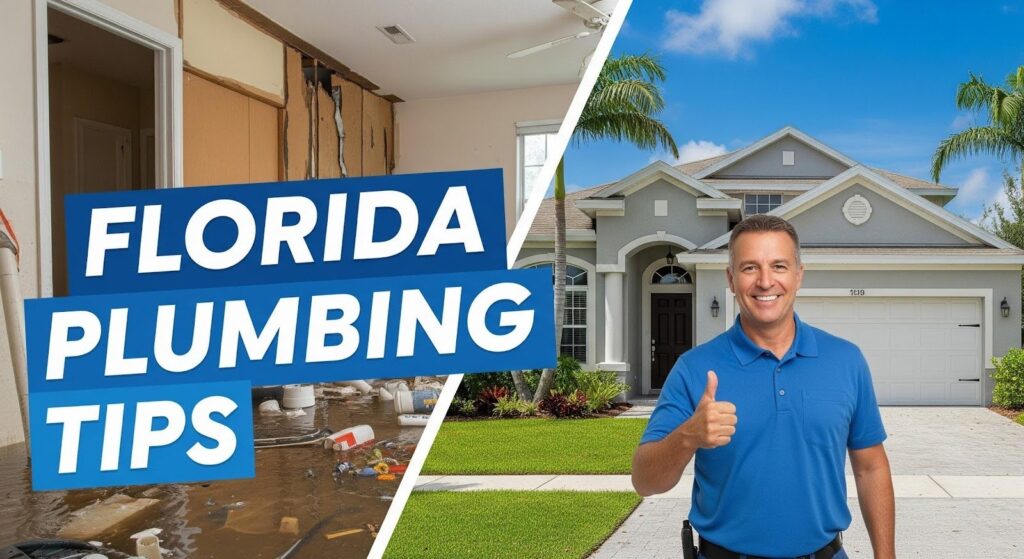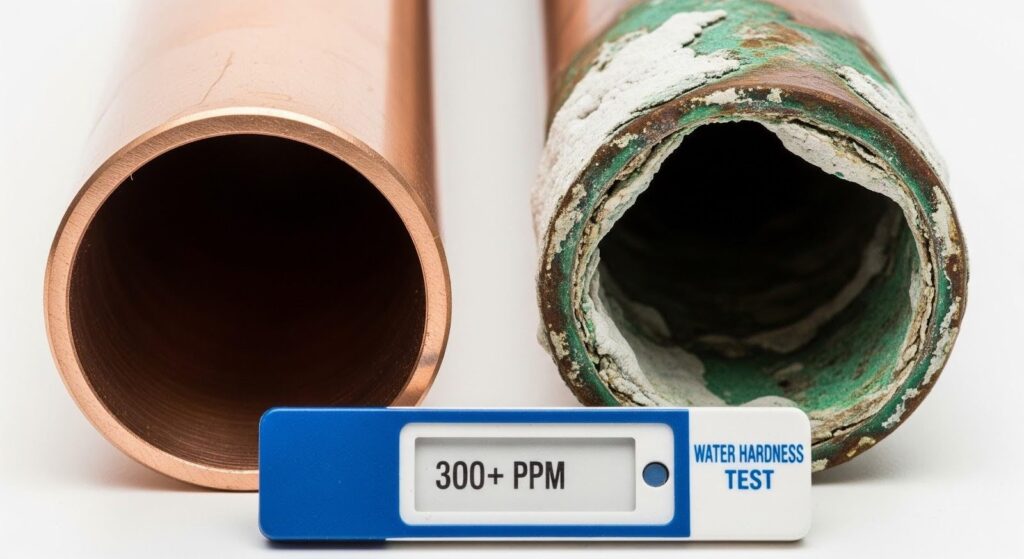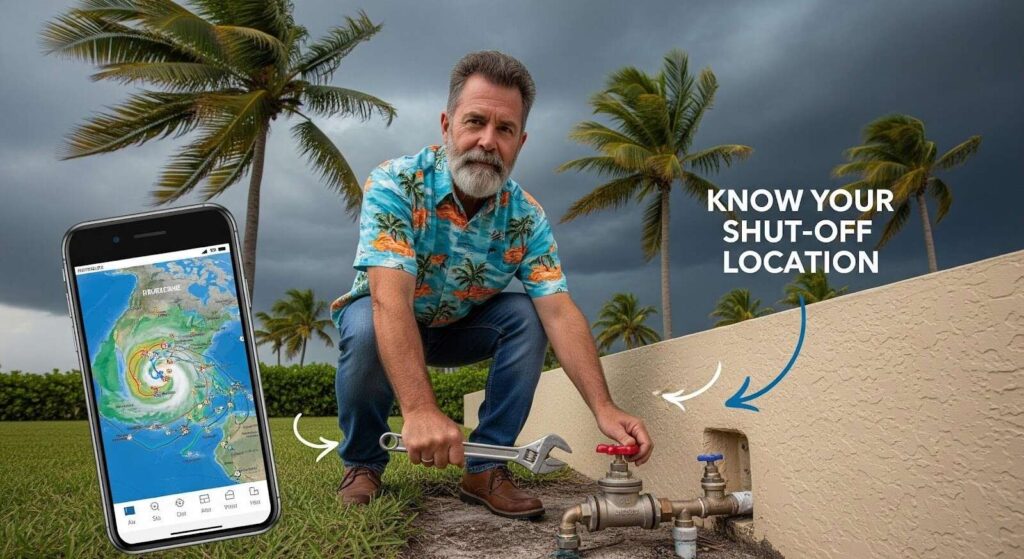If you’re a Florida homeowner, you may have noticed that plumbing advice from other states doesn’t quite work in the Sunshine State. That’s because Florida’s unique climate creates plumbing challenges that most of the country does not face. At HomeBriefings.com, we’ve researched the specific maintenance strategies that work best for Florida’s demanding subtropical environment.
This comprehensive guide combines insights from industry experts with over a century of Florida experience to provide you with practical, tested solutions that protect your home and save money on costly repairs. For additional home maintenance tips and seasonal preparation guides, HomeBriefings.com offers expert advice for every aspect of homeownership.
Understanding Florida’s Relentless Plumbing Challenges
Living in Florida for over 110 years has taught experienced professionals something most homeowners learn the hard way: the Sunshine State’s plumbing demands differ dramatically from anywhere else in the country. You’re right to be concerned about the unique challenges our climate presents.
Florida’s notorious hard water problem affects nearly every home. At an average of 216 parts per million (PPM), Florida ranks among the nation’s hardest water regions. The Floridan Aquifer System, which supplies water to most of the state, flows through limestone bedrock that dissolves calcium carbonate into your water supply. In coastal areas like Sarasota and Bradenton, hardness levels often exceed 300 PPM, creating mineral buildup that can damage fixtures and appliances within months if left unchecked.
Based on our experience with thousands of similar situations across Florida, the state’s sandy soil creates unique underground challenges for plumbing systems. Florida’s sugar sand lacks the stability necessary to properly support buried pipes, resulting in stress points that lead to premature failures. This shifting foundation allows aggressive tree roots to penetrate sewer lines more easily, causing ground movement that breaks pipe connections.
High humidity amplifies every plumbing issue. With average humidity levels of 74%, Florida creates conditions that allow small leaks to become major problems quickly. This moist environment promotes mold growth around pipes, accelerates metal corrosion, and can mask warning signs of developing issues. According to the U.S. Environmental Protection Agency, indoor humidity above 60% often indicates hidden plumbing leaks that require immediate attention.
Monthly Maintenance Tasks Every Florida Homeowner Should Know
Plumbing experts consistently recommend this monthly routine to prevent the costly emergencies that catch unprepared Florida homeowners off guard. The good news is that these problems are completely preventable when you understand what you’re fighting against.
Perform monthly leak detection at your water meter. Start with all fixtures turned off and note your water meter reading. Wait two hours without using any water, then recheck the meter. Any movement indicates a hidden leak that’s wasting water and potentially causing structural damage. This simple test catches problems before they escalate into expensive repairs.
Inspect all visible pipes and connections systematically. Look under sinks, around water heaters, and in crawl spaces for early warning signs that Florida homeowners need to recognize: green staining on copper pipes signals accelerated corrosion from our aggressive water chemistry, white crusty buildup indicates hard water damage that’s shortening fixture lifespans, and any moisture around connections suggests impending failures that need attention.
Monitor your home’s water pressure monthly. Florida’s municipal water systems often deliver pressure exceeding the safe 40-60 PSI range, creating stress that leads to burst pipes and appliance failures. Install a pressure gauge on an outdoor faucet and check it monthly. Pressure readings above 80 PSI require immediate correction with a pressure-reducing valve to prevent damage.
Maintain drains proactively to prevent blockages. Pour hot water mixed with white vinegar down each drain monthly to combat mineral buildup from hard water. Remove and soak faucet aerators and showerheads in vinegar overnight once a month to prevent calcium deposits that restrict flow and force fixtures to work harder.
Seasonal Maintenance for Florida’s Demanding Climate
Florida’s year-round subtropical climate necessitates strategic seasonal maintenance timing for maximum protection and cost-effectiveness. Our experience shows these seasonal approaches prevent 90% of the emergency calls from unprepared homeowners.
Spring preparation (March-May) builds your defense system. These months offer ideal conditions for comprehensive system checks before the summer’s peak usage and the threat of hurricane season. Water heater flushing becomes critical in Florida due to the accelerated sediment buildup caused by hard water. This maintenance extends equipment life significantly and prevents sudden failures.
Test every shut-off valve in your home during spring maintenance. Florida’s humidity and mineral-rich water cause these valves to seize from corrosion and buildup. Apply penetrating oil to stiff valves and operate them quarterly to ensure they’ll function when needed most.
Summer vigilance (June-August) prevents disasters. These months coincide with peak water usage and hurricane threats, creating ideal conditions for plumbing emergencies. Monitor water bills closely as increased usage can mask developing leaks. Clear gutters and storm drains before afternoon thunderstorms to prevent the drainage system from being overwhelmed.
Fall recovery (September-November) requires systematic inspection. The end of hurricane season provides a window for a comprehensive system evaluation. Inspect entire plumbing systems for storm damage, even in areas that avoided direct hurricane hits. Underground pipes that shift due to soil saturation often don’t manifest symptoms for weeks after storms pass.
Winter preparation (December-February) addresses Florida’s mild but important cold periods. While rare, North Florida can experience brief freezes that catch unprepared homeowners off guard. Insulate exposed pipes in attics and crawl spaces, and know how to shut off water to outdoor fixtures during cold snaps.
Hurricane Preparation: Protecting Your Plumbing Investment
According to the National Hurricane Center, proper plumbing preparation prevents up to 70% of storm-related water damage claims. When hurricane watches are issued for your area, your plumbing preparation can mean the difference between a minor inconvenience and a major disaster.
Ult Text: Florida homeowner demonstrates the water shut-off valve location for hurricane preparation.
Master your pre-storm shutdown procedures. When hurricane watches are issued, immediately shut off your main water supply to prevent contaminated storm water from backflowing into your home’s clean water system. This single step prevents thousands in post-storm cleanup costs and protects your family’s health.
Fill bathtubs and large containers with clean water before storms arrive. Municipal water systems often lose pressure or require boil-water notices after hurricanes, potentially leaving families without safe water for days.
Secure all outdoor plumbing fixtures. Remove and store hose bibs, pool equipment, and portable fixtures that become dangerous projectiles in hurricane-force winds. Wrap exposed outdoor pipes with foam insulation and tape to prevent impact damage from flying debris.
Know your emergency shut-off locations. Every family member should know where the main water shut-off valve is located and how to operate it. Keep appropriate tools attached nearby with glow-in-the-dark tape for easy location during power outages.
Smart Water Conservation for Florida Homes
Florida’s tiered water pricing makes conservation both environmentally responsible and financially beneficial. Strategic water management can reduce monthly bills by 30-40% while extending the lifespan of the plumbing system.
Choose water-efficient fixtures strategically. WaterSense-certified toilets reduce usage from 3.5 gallons per flush to just 1.28 gallons, saving typical families over 16,000 gallons annually. Low-flow showerheads, which maintain a flow rate of 2.0 gallons per minute, cut shower usage by 40% without sacrificing comfort, typically paying for themselves within 18 months through reduced water bills.
Optimize outdoor water usage. Irrigation represents 30-60% of total household water usage in Florida, making it the primary target for conservation efforts. Follow water management district restrictions, which typically allow irrigation only twice weekly during specified hours. Install rain sensors that automatically adjust watering based on weather conditions.
When to Call Professional Help
Recognizing when to attempt DIY repairs versus calling professionals can save money and prevent property damage. Industry experts consistently identify these situations as requiring immediate professional intervention.
These emergencies demand immediate response. If you smell gas near water heaters or other appliances, evacuate immediately and call professionals from outside your home. Sewage backups pose serious health risks requiring professional cleaning and disinfection. Burst pipes can discharge hundreds of gallons in a matter of hours, causing damage that spreads rapidly in Florida’s humid environment.
Persistent problems indicate serious underlying issues. When multiple drains clog simultaneously, it typically shows main sewer line problems that require professional equipment. Consistently low water pressure throughout homes suggests pipe corrosion or mineral buildup, which may require solutions beyond simple cleaning. Discolored water, unusual noises, or sudden changes in water quality require immediate professional diagnosis.
For complex plumbing issues in Florida, particularly in areas such as Sarasota and Bradenton, consulting with experienced professionals who understand regional water conditions and climate challenges ensures that problems are solved correctly the first time. Professional Sarasota plumbers with over 110 years of experience in Florida can provide solutions specifically tailored to our demanding subtropical environment, offering 24/7 emergency service and transparent pricing.
Creating Your Annual Florida Plumbing Calendar
Successful plumbing maintenance requires organization and consistency. Create an annual calendar with these critical tasks:
January: Test all shut-off valves and label them clearly for emergency access
March: Comprehensive spring inspection and water heater maintenance
May: Pre-hurricane season preparation and fixture servicing
July: Peak summer monitoring and outdoor system checks
September: Post-hurricane season damage assessment and repairs
November: Fall preparation and winter protection measures
Protecting Your Florida Home Investment
Maintaining your Florida home’s plumbing system successfully requires understanding the state’s unique challenges and responding with targeted solutions developed through over 110 years of serving Florida families since 1911. The combination of hard water, high humidity, sandy soil, and hurricane threats creates maintenance demands unlike anywhere else in the country.
The good news is that proper maintenance, informed by decades of real-world Florida experience from industry experts, can extend the life of your plumbing system while preventing costly emergencies. Start with monthly inspections, follow seasonal maintenance schedules, and never hesitate to call professionals when warning signs appear.
Your plumbing system faces more challenges in Florida than anywhere else, but with the right knowledge and consistent attention, it can provide decades of reliable service. Investing in proper maintenance pays dividends through prevented repairs, extended equipment life, and peace of mind knowing your home is well-protected.
For more practical home maintenance guidance and expert advice to help protect your most valuable investment, HomeBriefings.com provides comprehensive resources that empower homeowners with the knowledge and confidence they need to maintain their homes successfully.



